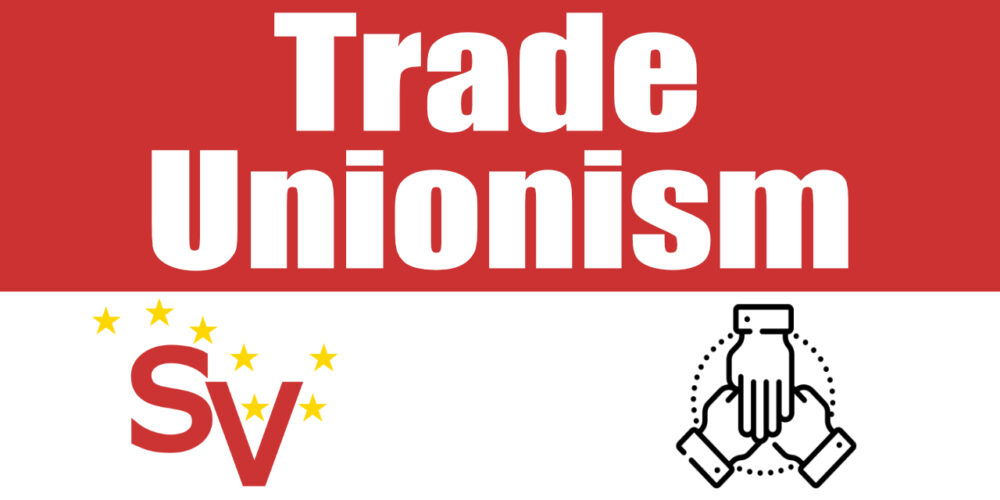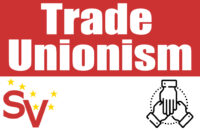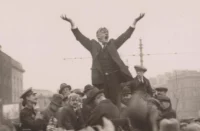Comrade Doran in the last Voice made several thoughtful observations. To this reader, his remark that Irish union members are “infected with a petty-bourgeois outlook, one that views trade union membership as an insurance policy or a last resort, not as organs of solidarity and struggle,” stood out most.
His views touch on an important question for those interested in trade unionism. However, this writer is unaware of any evidence from attitude surveys of the Irish population that supports classifying union members’ outlook as “petty bourgeois.” If we understand “petty bourgeois” as a distinct intermediate social class—typically made up of small business owners and the self-employed, among others—then Comrade Doran’s classification is not ideal.
Even if we accept that the “petty-bourgeois” are prone to self-interested, individualistic “ideological wavering,” depending on their uncertain material position in capitalism, this is not of the same magnitude that unionised workers might have contradictory outlooks derived in part from multiple, sometimes contradictory, interests.
That Comrade Doran disparages Irish union members for seeing membership as an “insurance policy” and not a means for “solidarity and struggle” raises several issues.
With respect, it is not unreasonable that workers view union membership as an insurance policy. Unions were founded on this point, emerging from earlier forms of friendly societies. The insurance function is core to what unions do. It emanates from, and is grounded on, the collectivisation of workers in their union as an institution. We should not treat the matter as either-or: insurance or struggle. Trade unionism is both.
To think about this, we can draw on high-quality evidence of what workers value from their unions.
A recent survey of fourteen unions in twelve European countries (Ireland not included) found that “support if I have a problem at work” is the main reason people are in unions.* In every union surveyed, more than 55 per cent of members cited support as one of the two principal reasons for staying a member. In three unions, more than 70 per cent did.
I would suggest that “valuing support at work” could be interpreted as an instrumental (if limited, workplace-specific) expression of solidarity.
Improvements in pay featured second in the ranking for most unions. Like “support,” the high value placed on “pay” confirms that members want a trade union agenda revolving around fair treatment and improvements in terms and conditions of employment.
That workers believe union membership improves their pay demonstrates that they are aware that there must be some counter-organisation to employers: members realise that they cannot rely on the latter’s charity. That is a reasonable, if limited, understanding of industrial struggle.
Most European workers showed marked variation in the value placed on a pure ideological support for trade unionism. Membership retention based on “I believe in trade unions and want to take part” was ranked as a reason for membership below pay in 10 of the 14 unions. However, it was ranked above “membership benefits” in 11 unions. On average, though, only about 30 per cent of those surveyed highlighted retaining union membership because they have ideological commitments to the union as an institution.
Incidentally, the union with firmest “belief in unionism” was the anti-communist Polish union Solidarność, at 50 per cent of members.
Unionised workers value practical and immediate gains from their union. However, these practical and immediate gains have a latent, if complex and contradictory, ideological underpinning that reflects in partial form elements of solidarity and struggle.
Rather than exhibiting “petty-bourgeois” outlooks, union members show a low or modest degree of “political consciousness” but respectable “trade union consciousness,” refracted through their own individual experiences and interests.
On balance, it seems unfair to dismiss Irish union members’ attitudes simply because they do not match up to the frustrated expectations of some Irish communists. One might recall Lenin here when he said: “It is not enough to be a revolutionary . . . It is necessary to know at every moment how to find the particular link in the chain which must be grasped with all one’s strength in order to keep the whole chain in place and prepare to move on resolutely to the next link.”
While communists should lead, they should not lead so far ahead that those they wish to lead remain too far behind.
*Jeremy Waddington, “Trade union membership retention in Europe: The challenge of difficult times,” European Journal of Industrial Relations, 21 (3), 2014.






